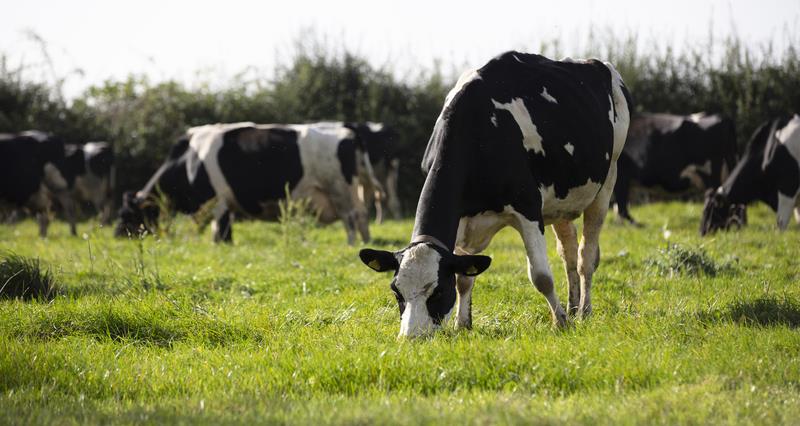Responding to analysis by Green Alliance, NFU President Tom Bradshaw has reiterated that there are ÔÇ£crucial questionsÔÇØ to be answered for the adoption of methane suppressing feed products to be successful.┬á
In its article ÔÇô ÔÇô Green Alliance claims British farmers are being left behind in tackling methane emissions and methane suppressants would be a cheaper way to reduce greenhouse gas emissions than current SFI (Sustainable Farming Incentive) offerings.┬á
The independent think tank and charity says that government support here in the UK lacks in comparison to subsidies offered in Belgium and Slovenia.
ÔÇ£Defra has talked about mandating the use of methane suppressants by 2030 and is developing a Dairy Demonstrator programme,ÔÇØ says Green Alliance. ÔÇ£But this isnÔÇÖt backed up by support for farmers to use these products, whereas farmers in Belgium and Slovenia are receiving subsidies of up to 80 per cent of the costs through new agricultural payments.ÔÇØ
ÔÇ£Methane suppressing supplements have the potential to be a really useful tool to reduce farm emissions, but there are crucial questions about how these products work, their long-term effectiveness and, most importantly, their impact on animal health and welfare.ÔÇØ
NFU President Tom Bradshaw
The advantages of methane suppressing feed supplements
Livestock, particularly cows and sheep, are the main cause of greenhouse gas emissions in the agricultural sector.
Research shows promising evidence that feed products with methane-inhibiting properties can significantly reduce emissions.
Green Alliance says the government should include methane suppressants in its SFI scheme and that doing so would be a cheap solution to reducing the UK's methane emissions. 
ÔÇ£If this product was fed to just a third of English dairy cows, it could cut UK-wide methane emissions by around one per cent, i.e. almost 16,000 tonnes per year, equivalent to half a million tonnes of CO2. The cost of implementing it is relatively low, only about half a penny per pint of milk produced.ÔÇØ
Incentivisation plans
In October 2023, Defra renewed its commitment to reducing methane emissions in livestock through plans to incentivise the use of methane suppressing feed products in England.
While welcoming Defra's plans to incentivise the use of high efficacy products, the NFU has always said that methane suppressing feed products are just ÔÇÿone piece of the puzzleÔÇÖ, which need to work alongside a range of other emissions reducing techniques.
NFU President Tom Bradshaw said: ÔÇ£Methane suppressing supplements have the potential to be a really useful tool to reduce farm GHG emissions, but there are crucial questions about how these products work, their long-term effectiveness and, most importantly, their impact on animal health and welfare.
ÔÇ£Viability must also be addressed in terms of costs, credible certification and availability, as well as finding solutions to inconsistent and unequal intake by cattle in grazing systems.ÔÇØ
A multifaceted approach
ÔÇ£Feed supplements are just one piece of the puzzle, and they need to work alongside a range of further GHG emission-reducing techniques, such as genetic selection, efficiency improvements and other technologies.
ÔÇ£British farmers have a huge amount to offer when it comes to producing sustainable and climate-friendly food and we look forward to working with Defra and the wider supply chain to continue to develop the evidence base that allows farmers to make informed decisions.ÔÇØ
